Projets en cours
Projet CNRS

Inscrite dans « Innovation numérique pour l'excellence éducative » du Programme d'investissements d'avenir, l'action ProFAN - conçue et pilotée par la mission Monteil (mission interministérielle sur le numérique éducatif) - a permis d'aménager, dans un cadre scientifique attesté, des situations d'apprentissage et d'enseignement afin d'étudier l'acquisition de compétences socio-comportementales et d'en mesurer les effets cognitifs et sociaux chez les élèves impliqués dans l'expérimentation.
De janvier 2017 à décembre 2021, les différentes phases de l'expérimentation se sont déroulées en associant, dans un protocole commun, des chercheurs, des cadres de l'éducation nationale, des équipes pédagogiques (plus de 1 200 enseignants) et des élèves de baccalauréat professionnel (plus de 10 000 élèves) dans 3 filières représentatives des grands secteurs d'activités dans 109 établissements de 10 académies. Le consortium de recherche réunissait 26 chercheurs dans 7 laboratoires français et suisses.
Le traitement scientifique des situations d'enseignement et d'apprentissage étudiées, fondées, notamment, sur la mobilisation et la reconnaissance des expertises de chacun des élèves, montre qu'elles ont des effets à la fois sur l'amélioration des performances scolaires et sur l'acquisition de compétences socio-comportementales. S'ouvrent ainsi des possibilités concrètes pour enrichir les formations initiales et anticiper par la formation continue les évolutions du monde du travail dans l'univers digital.
Dans le cadre des investissements d'avenir de France 2030 et dans le contexte de la réforme du lycée professionnel voulue par le président de la République en concertation des acteurs de l'éducation, il a été décidé de soutenir un ensemble d'initiatives susceptibles de faciliter et d'accélérer les transferts des acquis de cette action dans le monde de l'enseignement et de la formation professionnels.
Projet dirigé par Prof. Fabrizio Butera à l'Université de Lausanne avec la collaboration du Prof. Emilio Paolo Visintin pour la période de 2024 - 2027. Budget: 500'000 euros.
National Center of Competence in Research –
The Migration-Mobility Nexus
Réquerant·e·s:
- Eva G. T. Green (UNIL)
- Juan Manuel Falomir-Pichastor (Université de Genève)
- Anita Manatschal (University of Neuchâtel)
This project examines attitudes toward migration and democracy in the Global North and South in the context of international crises (e.g., COVID-19, climate change, and the rise of anti-democratic norms). Combining the perspectives of social psychology and political science, we use cross-sectional and longitudinal survey data as well as experiments.
How Identity, Emotions and Ideology Shape Immigration Attitudes in Intertwined Societal Crises (Dr. Jessica Gale)
Bridging recent advances in intergroup research on reactions to emergencies and contextual social psychology, we examine how individual (different facets of identity, intergroup emotions and ideological orientations) and contextual factors (nature of crisis, ideological climates, structural factors) shape national majority views regarding immigration. We focus on both xenophobia and intergroup solidarity.
Attitudes towards Migration and Society in Ukraine (Dr. Irina Bondarevskaya)
https://uris.ch/news/attitudes-towards-migration-and-society-in-ukraine

Une étude propose un atelier basé sur la coopération pour aborder les enjeux environnementaux et sociaux à l'école. Elle est menée par Fantine Surret, Céline Buchs et Fabrizio Butera, chercheur·euse·s à l'UNILaPS (Institut de psychologie, UNIL), ainsi qu'une groupe de mémorant·e·s en psychologie.
Cet atelier a été construit en partenariat avec l'Eprouvette, le Laboratoire Sciences et Société de l'UNIL. En mobilisant la théorie du donut (Raworth, 2017) il permet d'aborder les interdépendances environnementales, économiques et sociales. En liant explicitement les enjeux sociaux et environnementaux, il permet aux élèves de réfléchir aux activités humaines via un prisme conjuguant les limites planétaires et le plancher social.
Cet atelier mobilise des concepts théoriques issus de la psychologie sociale, et un dispositif pédagogique, l'apprentissage coopératif, dont les mérites ont été amplement décrits par les sciences de l'éducation. Cette étude de terrain permet donc à la fois de créer du matériel pédagogique à disposition des enseignant.e.s, et d'approfondir différents champs théoriques.
L'atelier a reçu le soutien financier du Fonds national Suisse ainsi que de la plateforme U-change de l'Académie Suisse des Sciences. Grâce à ce soutien, l'atelier peut être proposé aux classes de 7ème et de 8ème du Canton de Vaud, soit dans les locaux de l'Eprouvette sur le campus universitaire, soit directement dans les établissements scolaires.
“My body, My Choice!”, activists shout through countless feminist mobilizations since the 2nd Wave of Feminism. This slogan speaks to women’s worldwide challenge of the existing status quo as women reclaim agency over their bodies by freely choosing what to wear, protesting topless or engaging in other empowering acts. Social psychologists within the field of body image have shown contrasting results on the effects of behaviours such as self-sexualisation on feminist engagement. As such, the main aim of the project is to investigate the social psychological mechanisms that explain when sexualisation may serve as a hindrance or a facilitator for the engagement in feminist collective actions.
DOC.CH grant of Céline Castellino for the period between 2023 - 2025
Anatolia Batruch, Première Assistante au Laboratoire de psychologie sociale (UnilaPS) de l'Institut de Psychlogie a obtenu une subside Ambizione qui débutera en 2024 dans le cadre de son projet « Social Class Intergroup Model: An Identity-Based Framework to Reduce Anti-Immigration Attitudes ».
Son projet propose un nouveau modèle pour expliquer les raisons pour lesquelles les personnes de statut socio-économiques plus bas ont tendance à être plus opposées à l’immigration. « Le modèle intergroupe de classe sociale » suggère que les personnes de statut socio-économiques plus bas forment des liens psychologiques forts avec leurs identités perçues positivement (par exemple, genre, race, nationalité) pour compenser une identité sociale négative due à leur statut. Cette tendance à être plus "groupiste" alimente des préjugés intergroupes. Ce modèle vise à expliquer certaines incohérences dans la littérature sur la psychologie de la classe sociale et permet d’envisager des pistes pratiques pour diminuer les attitudes anti-immigrants.
The RESONET project is a collaborative research project funded by the European network WEAVE 
« Research Funding Without Borders » (SNF, FNRS, FWO) led by:
- Prof. Eva G.T. Green, Université de Lausanne
- Prof. Karen Phalet and Dr. Emanuele Politi, KU Leuven
- Prof. Laurent Licata and Prof. Antoine Roblain Université Libre de Bruxelles
Because a growing number of people are seeking international protection, it is urgent to examine how their adjustment to the receiving countries can be facilitated. Migration trajectories of asylum seekers and refugees (i.e., displaced migrants) are often marked by broken relationships, loss of social support, and cumulated social exclusions. At the cross-roads of social, cultural and political psychology, this project employs an ego-centric social network approach and examines proximal social environments as spaces enabling resilience of displaced migrants, while concurrently sustaining host society members' engagement in solidarity-based actions in support of displaced migrants. By combining unique data collected within this project with existing data, three research teams in Belgium and Switzerland examine how intercultural ties between displaced migrants and host society members are created and sustained.
Subside de recherche: CHF 267'303
Partenaires du projet
- Dr. Meta Van der Linden, Erasmus University, Rotterdam
- Dr. Tobias H. Stark, ERCOMER, Utrecht
Projet dirigé par Prof. Christian Staerklé pour la période 2020 - 2024.
Montant : 700'000 chf.
Few concepts are currently as debated, yet contested, as populism. Over the last decade, populism has emerged as a social and political force across many European countries. Complementing recent populism research in political science and communication sciences, the present proposal contributes to fill this gap with an ambitious research programme to study the attitudinal structure, antecedents and outcomes of populist representations in a crossnational perspective.
Based in social and political psychology, our research offers new insights for an ideational approach to populism that considers populism neither to be limited to a simplistic political style or discourse, nor to marginal fringe movements jeopardising the democratic process with irrational and emotional behaviours. Instead, we consider populist thinking to define significant and heterogeneous segments of contemporary national populations who are united in anchoring their views on society in an irreconcilable opposition between the “people” and the “elite”. Yet, this founding antagonism of populist representations takes on many forms depending on individual, group-based and contextual factors that will be examined in this research. The present proposal offers an interdisciplinary framework to study populist representations across four European
countries that have witnessed, over the last decades, a significant rise of either right-wing (national) or left-wing (social) populist movements: Switzerland, Finland, France and Greece.
Summary of objectives
- To develop and test the Populist Representations Model (PRM).
- To examine the convergence and divergence of predictors and outcomes of both national and social populism across four national contexts: Switzerland, Finland, Greece, France.
- To examine the temporal trends of populist representations between 2002 and 2018 across these four contexts.
- To develop and implement an experimental research programme in Switzerland testing the populist belongingness hypothesis according to which interpersonal similarity, conformity and cohesion fuel endorsement of populist representations.
Partenaires internationaux:
- Prof. Xenia Chryssochoou, Panteion University of Athens, Greece
- Prof. Nikos Kalampalikis, Université de Lyon II, France
- Prof. Inari Sakki, University of Eastern Finland
Le projet a pour but d'étudier le lien qui amène de l'éducation à l'environnement et à l'engagement dans des comportements pro-environnement dans les cantons de Genève et Vaud et est financé par le Fonds National Suisse de la Recherche Scientifique.

Projet dirigé par Prof. Fabrizio Butera pour la période 2018 - 2022.
Collaborateurs:
- Dr Céline Buchs, MER à l'Université de Genève
- Dr. Emilio Visintin, Chargé de recherche à l'Unil
- Terragir, association à but non-lucratif basée à Genève
Montant : 700'000 chf.
Abstract
Human-induced environmental problems have led to the development of research programs aimed at influencing human behavior and making it more environmentally friendly, but these programs have mainly targeted the behavior of adults. We believe that it is time to be concerned about social influence on pro-environmental behaviors of children, who will be the future citizens of planet Earth.
In the present research, we wish to study an intervention aimed at changing children’s pro-environmental behaviors. We consider that environmental problems need to be understood as collective phenomena in order to have an impact on pro-environmental behaviors, as these problems are the result of collective behavior and may only be solved by coordinated behavior. We thus reasoned that to truly understand what environmental problems are and what can be done, children should understand the links among people, among different groups and populations, and ultimately the links between humankind and nature. We propose that an intervention based on structured cooperative learning—known to foster the notion that collective efforts need interdependence, complementarity and coordinated action—might make children aware of various levels of interconnectedness (individuals, groups, populations, nature), which should result in promoting pro-environmental behavior in children. We test the general hypothesis that working in a cooperative learning structure based on positive interdependence should increase pro-environmental behaviors, compared to spontaneous cooperation.
Projet FNS, Division pour la coopération interdisciplinaire et internationale
Le projet est deposé dans le cadre du Croatian - Swiss Research Programme (CSRP) et les bénéficiaires sont: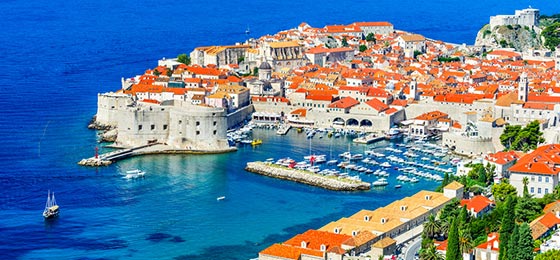
- Prof. Fabrizio Butera, Université de Lausanne
- Dr. Margareta Jelic et Prof. Dinka Corkalo, Université de Zagreb
Montant 350'000 chf pour la période 2018 - 2021.
Abstract
Since 2015, Europe is facing an Immigration Crisis as millions of people fled war-torn countries of Africa and Middle East. The crisis confronts Europe with a challenge to integrate refugees in of the receiving countries. This challenge is often accompanied by many difficulties, from low public support and prejudice towards refugees, to specific difficulties of integration, such as language barrier of the newcomers in the new society. While there are quite a few strategic documents and a variety of integration programs within European countries, there are not so many prevention and intervention programs that are scientifically evaluated and proved to be efficient in reducing prejudice among host-society members and to facilitate integration process.
Therefore, this project focuses on both host-country citizens (i.e., majority) and refugees in Croatia, looking at the school system as the major tool for integration of refugee children and change of potentially harmful negative attitudes towards them. Specifically, we aim to conduct a longitudinal study of change in school climate regarding refugees’ integration issues as well as in intergroup attitudes and contact. The main objective of the project is to analyze the role of school as an active agent in the integration process of refugees and to learn about how school can and prevent and combat majority prejudice.
NCCR On the Move
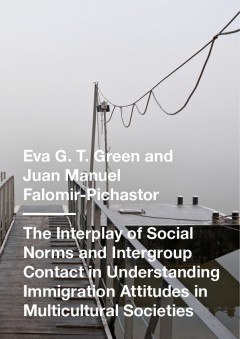
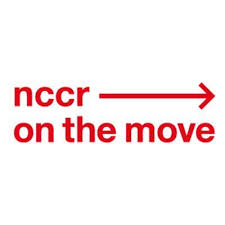 Projet pour la période 2015 - 2018, 221'481 chf.
Projet pour la période 2015 - 2018, 221'481 chf.
Réquerants: Eva G. T. Green (UNIL) & Juan Manuel Falomir-Pichastor (Université de Genève)
List of contributors (Université de Lausanne): Prof. Eva Green, Dr. Oriane Sarrasin, Dr. Emilio Paolo Visintin, Dr. Jacques Berent
In their everyday lives, national majority members are exposed to immigration to different degrees – in particular due to different compositions of neighborhoods, of regions, or of countries in terms of immigrants and natives. This will affect the amount of everyday intergroup contact people experience. Moreover, inclusive versus exclusive policies as well as shared values convey societal norms that shape the national majority members’ attitudes. The aim of this project is to uncover the interplay between societal norms and intergroup contact in explaining national majorities’ stances towards immigration.





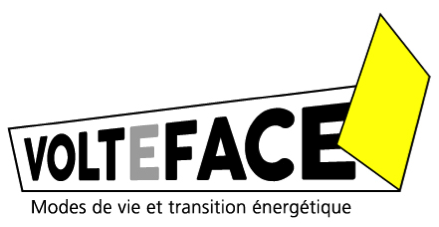 Le projet est dirigé par Prof. Fabrizio Butera et Dr. Oriane Sarrasin pour la période 2015 - 2018, 160'000 chf.
Le projet est dirigé par Prof. Fabrizio Butera et Dr. Oriane Sarrasin pour la période 2015 - 2018, 160'000 chf.
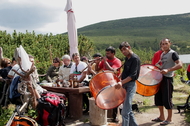 Swiss National Science Foundation in the context of the Bulgarian-Swiss Research Programme.
Swiss National Science Foundation in the context of the Bulgarian-Swiss Research Programme. Projet FNS pour la période 2014-2015, 1'376'000 chf.
Projet FNS pour la période 2014-2015, 1'376'000 chf.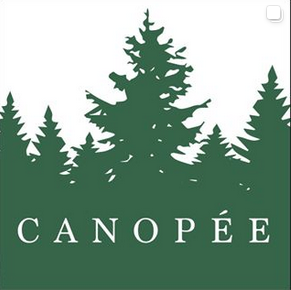 L'InnoPACTT, soutien financier à l'lnnovation UNIL-CHUV, a été créé par le PACTT pour favoriser l'innovation au sein du CHUV et de I'UNIL et encourager la création de start-ups.
L'InnoPACTT, soutien financier à l'lnnovation UNIL-CHUV, a été créé par le PACTT pour favoriser l'innovation au sein du CHUV et de I'UNIL et encourager la création de start-ups.